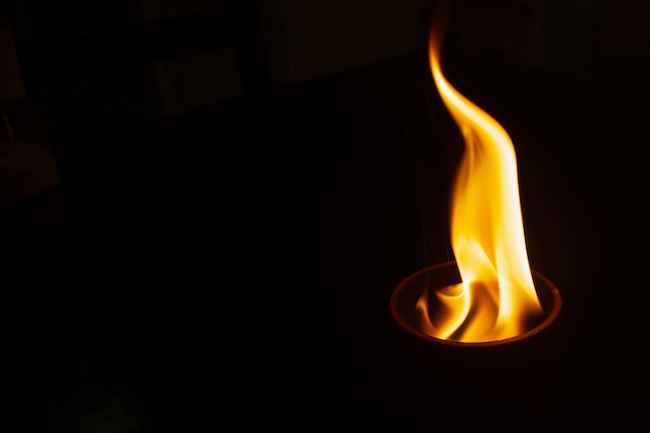
It is the olah on the place of burning on the altar all night.[2]
There is much more to the olah than meets the eye. The first indication is that, unlike the chatas, the asham, the todah, the Torah doesn’t link it to any particular sin or event. It is all so mysterious.
Chazal, of course, do link it to a more sublime place than other offerings – namely, that it is meant to atone for something entirely internal. It atones not for some action or speech, but for a flaw in the inner man, i.e. for thoughts of transgression.
The olah “works” by connecting a person with his Source, his root. Connected there the person is changed not only in rectifying the past, but in addressing the future. It interrupts the cycle of one sin dragging along another in its wake. In doing so, it follows the lead of Yitzchok Avinu. When the avos were warned that HKBH was considering punishing the Jewish people for its iniquity, it was only Yitzchok who staved off tragedy. He first bargained down the outstanding bill by claiming that of the seventy years of a person’s life, many of them were not relevant to the accounting, leaving a much smaller outstanding obligation. He offered to split the smaller amount with HKBH. If He was unwilling, then “I will take all of it upon myself, because I already offered myself as a korban for them.”[3]
Let us examine what he meant. We generally recognize two sources of the aveiros of Klal Yisrael: the yetzer hora, and the collective toll of shibud malchiyos, of the oppressiveness of those who hold dominion over us, politically and culturally.
The first of these forces – the yetzer hora – is so destructive that Hashem is described as “regretting” every day that He unleashed it. Now, HKBH is actually incapable of “regret.” He makes no mistakes, and the future is always foreseen to Him. Depicting Him as entertaining regrets for what He created can only mean that He makes readily available to us a powerful kedushah that attenuates the strength of the yetzer hora.
The second force, shibud malchiyos, has a curious history. It was created by none other than Yitzchok himself, when he assigned a variable role to Esav. Yaakov would dominate not only Esav but all the nations, when he would live on the highest plane expected of him. When he would be that faithful to his mission, all other nations would gladly subordinate themselves to him. This would change only “when you [Esav] are aggrieved, [and] you will throw off his [i.e. Yaakov’s] yoke.”[4] When Esav could argue that he was an aggrieved party to the relationship – when he could point to a Klal Yisrael mired in sin, that therefore did not deserve to prevail over him – he would then be entitled to throw off Yaakov’s yoke. When he did that, he would overturn the previous rules of engagement, and he, Esav, would then rule over his brother. This, in effect, is the institution of shibud malchiyos.
The same Yitzchok Avinu was careful to hold that shibud in check, by offsetting the sins of Klal Yisrael with the zechus of his own sacrifice at the Akeidah. By doing so, he placed a limit on the depredations of Esav during the times of his dominion over Klal Yisrael.
The very pasuk that created the space for shibud malchiyos hints at this limit. “You will throw off his yoke.” On the plain level, “his” refers to Yaakov. But it can also refer to the yoke of HKBH. Esav’s success in dominating Yaakov would come at a dear price to him. Esav would throw off Yaakov’s yoke only by casting aside that of Hashem at the same time! Like the slave who enjoys his debased role because, being free of any restraints, the cheap and tawdry are readily available to him,[5] Esav would subjugate his brother only by discarding the holiness of Yaakov’s mission. Esav would so compromise himself, that when Yaakov would regain his previous stature, Esav would not be able to appreciate it.
That time will certainly come. It is alluded to in our pasuk. “It is the olah,” using the definite article. That most distinguished of all olos, the self-sacrifice of Yitzchok. Every olah connects with the Akeidah, the korban that assures that Klal Yisrael will have a “going up” to its Divinely ordained place.


